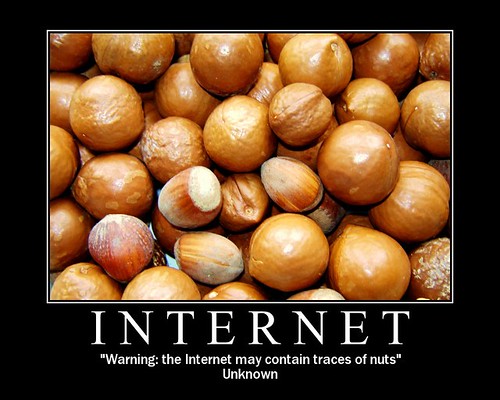The internet has allowed many of us to become better informed and more able to get the information we’re looking for quickly and easily. This means that if we want to find out about a health problem we have, or want to get advice on diet and exercise, that often we will forego seeing a doctor and instead just consult Google to get our answer.
On the one hand this is a good thing because it means that we can get more information about our health and are generally more knowledgeable than we would be. Often we will check online when we wouldn’t have otherwise looked into the problem any further at all, so in these cases it is of course better than nothing.

At the same time though there is also a darker side to all this which is of course the fact that the web isn’t always an accurate source of information and can sometimes spread misinformation that could be more dangerous than not knowing anything at all. As my Mother says ‘a little knowledge is a very dangerous thing’.
So the question is, can you ever trust what you read online? And how can you go about ensuring that what you do read is at least as trustworthy as possible? Here we will look at some guidelines to help you make up your mind.
Is it a Reputable Site?
First things first, look at the author of the website and at whether or not it looks like a reliable source. While you can only tell so much from who made the website, if it’s from a news outlet then it’s more likely to be accurate than if it’s on a site that’s trying to sell something or on Wikipedia (though Wikipedia is actually 99.99% accurate according to studies!).
Does it Make Sense?

You also need to think about this using your logical and critical mind. Does it sound like it’s likely to be accurate? Or does it make no sense? Think about what you know about biology and then try to think if the science seems to be sound. With something like homeopathy it only takes a bit of extended thought to realise there is no possible scientific basis. And if you don’t know/understand the science? Then look up the terms you’re reading and see if you can gain a working understanding of how it claims to work.
Does it Concur With Other Sources?
To be safe you should never trust one source completely without cross referencing it with other sources. If lots of sites are all saying the same thing then this usually tells you that there is probably some truth in it. On the other hand though, if you can’t find another source to back up what you’re reading then you should carry on looking around.
Practice Caution
If there is any doubt though then you should always consult a professional. Likewise if it’s regarding a serious condition or some kind of drug, then you should always ask a doctor first. The internet is fine as a tool to supplement your existing knowledge, or to guide you on aches and pains. When it comes to serious business though, always consult the experts.
Attached Images:
- License: Creative Commons image source
- License: Creative Commons image source
Michelle Campbell is a health blogger and blogs about latest technological inventions in the health zone. She recently discussed about PRP injection in one of her articles.










Comments